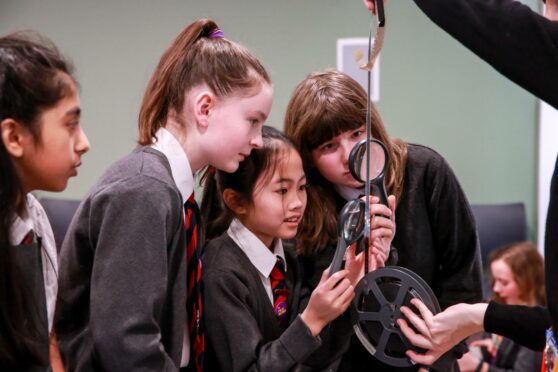A new website dedicated to teaching people the ancient Gaelic language through visual media has been launched by Into Film Scotland.
The resource aims to help the Gaelic education community to deliver the history and cultural significance of the language in Scotland.
The dedicated website has launched to coincide with Languages Week Scotland, which celebrates signed and spoken dialects from across Scotland.
Gaelic is unique to Scotland and comes from the ancient Celtic language. In 2018, it and 3,000 other world languages were at risk of dying out.
Language projects have since helped revive interest in Scotland’s indigenous language.
An estimated 57,000 people still speak Gaelic in Scotland and can be found in places such as the Highlands and the Islands, which account for 55% of total speakers.
In 2021, the Scottish Government published its five-year Gaelic Language Plan. It aims to support Gaelic speakers and afford them more opportunities.
The government notes that Gaelic is an “integral part of Scotland’s heritage, national identity and current cultural life”.
Into Film’s new Gaelic website will use visual media such as feature films, archive short films and creative materials to help educators teach young people Gaelic.
The resource – which will cover topics such as Eco Explorers, Mindfulness Through Film and Scotland on Film – is aimed at school children and is free to use.
To celebrate the launch of the new website, Into Film is also holding free online workshops delivered in Gaelic so young people can appreciate and analyze Gaelic films.
While the site focuses on educating young people about Gaelic through visual media, it also gives them guidance on film techniques including colour, character, camera, story, sound and setting.
‘It is part of who we are, part of our culture and our history’
Kirsty Gallacher, programme delivery manager at Into Film Scotland, said: “We are committed to making our programme as inclusive as possible, including languages.
“We really hope that our new Gaelic page housing a collection of translated resources and the exciting workshops and competitions on offer demonstrates our efforts to better connect and engage with the Gaelic education community.
“Film is a universal language and a fantastic tool kit for educators to use in their teaching practice.
“We’d love to see Gaelic learners engage with these exciting learning opportunities through film.”
Film education practitioner Alasdair Satchel, who speaks Gaelic and is based on the Isle of Mull, said: “I believe it is important to work with film in an educational context because it is part of what is inside us.
“The Into Film website has everything you need and if you are interested in speaking to anyone, there are a lot of opportunities with the team or to meet someone.
“Every child is familiar with film. We are fluent in the language of film. And therefore, it is important to promote literacy and emotional literacy and every kind of learning – it is relevant to all subjects at every level in school.”

